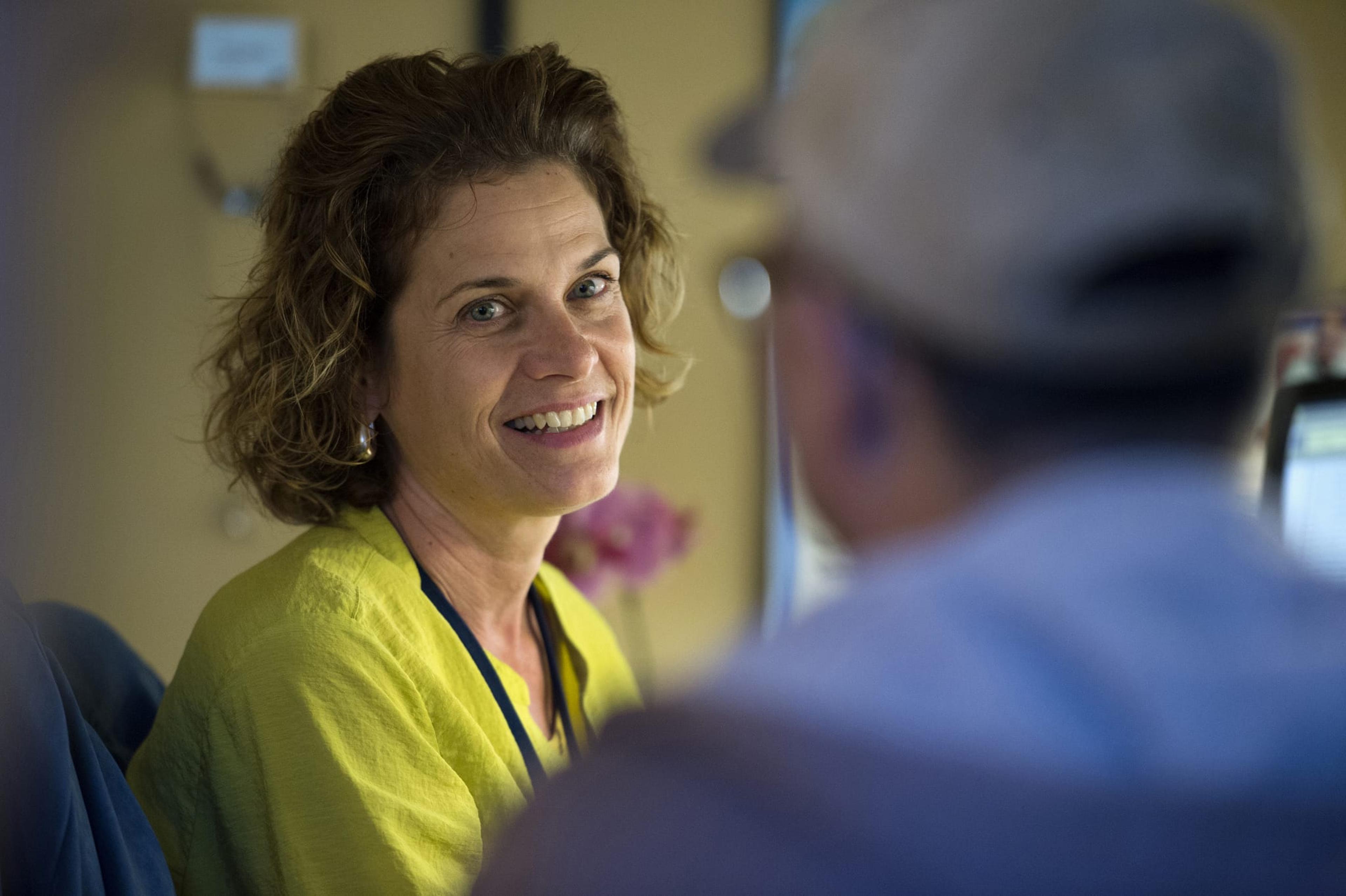
Partnership Expands Access to Behavioral Health Care for Low-Income Grand Rapids Patients It’s a person with a chronic disease self-medicating with alcohol and other drugs. It’s the patient with the new diagnosis of diabetes too depressed to manage their symptoms. It’s someone so anxious that making it out of the house for a doctor’s appointment is a small victory. These are the people a new integrated care partnership in Grand Rapids intends to help. Two clinics, Catherine’s Health Center and Health Intervention Services (HIS), were recently awarded $96,250 to develop a system of resource and staff sharing to expand access to evidence-based treatment for depression, anxiety and substance abuse disorders. Leaders at both clinics say the ability to make further strides toward treating the whole person – body, mind and soul – through an integrated care approach will likely result in healthier patients overall. “It’s going to be much easier for our patients to access behavioral health care and it will be services that are available when they need them,” said Karen Kaashoek, executive director at Catherine’s. What is integrated care? Integrated care is a model of health care that embeds behavioral health specialists into a primary care setting. Having a comprehensive way to treat medical conditions alongside behavioral health issues such as anxiety, depression and substance abuse disorders (SUD) often results in better outcomes for patients. One in five people have a mental illness or SUD. Fighting that often takes precedence over managing chronic health conditions, such as diabetes or high blood pressure. Integrating care removes a barrier for patients, who may not be likely to follow up on referrals to see specialists. “When you’re depressed or when you’re anxious, it’s really hard to focus on what you need to do to take care of yourself,” said Bill Paxton, president at HIS. Why these clinics? At clinics like Catherine’s and HIS, patients often face many barriers to health care. Just accessing primary care can be difficult due to a lack of transportation, work schedules, childcare and other factors. Paxton and Kaashoek both spoke of a chicken and egg conundrum that patients face – sometimes depression and anxiety cause physical symptoms to occur, and other times, a chronic health diagnosis can trigger a behavioral health issue such as an addiction. “Sometimes depression and anxiety are organic,” Kaashoek said. “Sometimes those behavioral health issues are a normal protective response to a life that’s horrible and the only way a person can survive is to develop these coping mechanisms.” “You layer poverty on top of those other things and it just complicates everything,” she said. Because of the interconnectedness that exists between medical needs, behavioral health and poverty, putting solutions within easier reach makes sense, both Kaashoek and Paxton said. How will it work? The Grand Rapids funding will cover a shared full-time social worker, part of a data coordinator to measure patient outcomes and some care coordination efforts. The additional resources will allow both clinics to offer behavioral health screening for any patient willing to participate. If screening reflects a behavioral health issue, primary care staff and volunteers can then determine the best course of action, whether that’s onsite behavioral therapy or a referral to other community organizations or experts in providing the needed service. Even if a patient’s needs are too large for the individual clinics to handle, Paxton said he still anticipates a better handoff to other agencies, since primary care providers and the social worker will be able to have those initial conversations in a setting the patient is comfortable with. Dealing with behavioral health issues isn’t easy and it doesn’t happen in a day. Paxton explained that many times, regular touchpoints are necessary to foster a patient’s readiness to make real, lasting change. Knowing there’s an issue opens up that dialogue, making it possible to more effectively usher someone to seek help. Kaashoek said they’ll be met where they are, with the social worker helping them to set goals every step of the way. Moving forward The new partnership continues and strengthens a commitment to put patients first at both centers. Volunteers and staff at HIS gather every morning before people start showing up for appointments to coordinate and think through their care. They pray for those they’ll see that day. At Catherine’s, every patient interaction is guided by the center’s four foundational values of justice, service, dignity and stewardship. The clinics’ management expect to hire the new social worker by the beginning of 2017 and anticipate that within the first program year, 3,000 people will be screened, with 50 to 100 fully engaged in care management. Kaashoek said they’re already thinking about how to fund another full-time social worker, anticipating that demand will be greater than they can accommodate. Paxton said more and more health care providers are looking into how they can offer integrated care to their patients. “I think eventually all health care will be going to it,” Paxton said. The integrated care grant funding for this initiative was part of a larger $535,000 effort aimed at safety net providers across Michigan to expand treatment options for uninsured and low-income patients. A unique partnership between Blue Cross Blue Shield of Michigan, the Blue Cross Blue Shield of Michigan Foundation, Ethel and James Flinn Foundation and the Michigan Department of Health and Human Services made the grants possible. Photo Credit: DoD News





